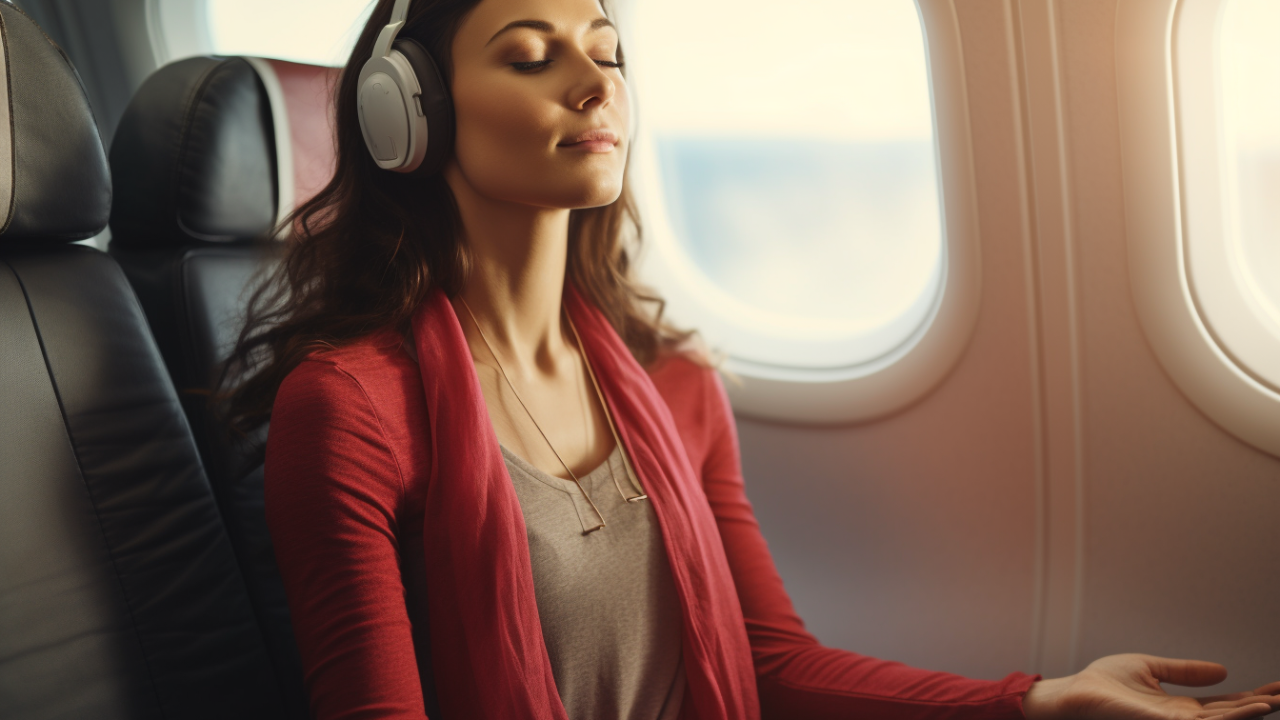Meditation During Travel: Staying Grounded on the Go

Travel, whether for leisure, business, or necessity, offers a plethora of experiences, ranging from the joy of discovering new places to the stress of unexpected delays. Amid the hustle and bustle of traveling, maintaining a sense of grounding and balance can be challenging. Enter meditation – a centuries-old practice that can be a traveler's best companion, keeping them centered regardless of their external circumstances.
The Science Behind Meditation and Stress Reduction
Travel often comes with its fair share of stress. From flight delays, jet lag, to navigating unfamiliar terrains, these challenges can test even the most patient traveler. Thankfully, meditation offers a scientifically-backed solution to manage and reduce stress.
A study conducted at Harvard Medical School found that meditation induces a relaxation response, which in turn reduces the heart rate, blood pressure, and oxygen consumption[1]. The process aids in counteracting the effects of the body's "fight or flight" response, which is often triggered by stressful travel situations.
Jet Lag and Meditation
Jet lag can be one of the most daunting aspects of travel, especially when crossing multiple time zones. At its core, jet lag results from a misalignment between our internal body clock and the external environment.
Research indicates that meditation can help regulate the circadian rhythms, the body's internal clock that dictates sleep-wake cycles. A study demonstrated that individuals who practiced meditation experienced better sleep quality and thus can adjust to new time zones better than those who didn't[2].
Enhancing Cognitive Function on the Move
Traveling requires a heightened sense of awareness, from navigating new cities to understanding foreign languages. A sharp mind can be a traveler's best asset, and meditation offers a direct route to enhancing cognitive function.
Research has shown that regular meditation can lead to increased thickness in brain regions associated with attention and sensory processing[3]. Another study found that meditation helps in the preservation of cognitive function during high-stress situations, which can be a boon during challenging travel situations[4].
Building Emotional Resilience
Travel is not just a physical journey but an emotional one too. Facing unexpected challenges or being outside of one's comfort zone can bring forth a range of emotions. Meditation offers tools to build emotional resilience, enabling travellers to handle challenges with grace.
A study from Stanford University demonstrated that participants who underwent meditation training showed reduced reactivity to emotionally-charged images compared to a control group[5]. This reduced reactivity can translate to better emotional regulation when faced with the unpredictable nature of travel.
Staying Present: Savoring the Experience
Lastly, one of the primary joys of traveling is immersing oneself in new experiences. Meditation, particularly mindfulness meditation, helps in grounding oneself in the present moment, thereby allowing travelers to deeply savor every experience.
Research from the University of California has shown that individuals who practice meditation regularly reported heightened sensory awareness and were more attuned to their environment[6].
Conclusion
Meditation offers more than just inner peace; it provides a toolkit for travelers to stay grounded, balanced, and present. The scientific community continues to shed light on the myriad of benefits meditation offers, making it an essential practice for those on the go.

